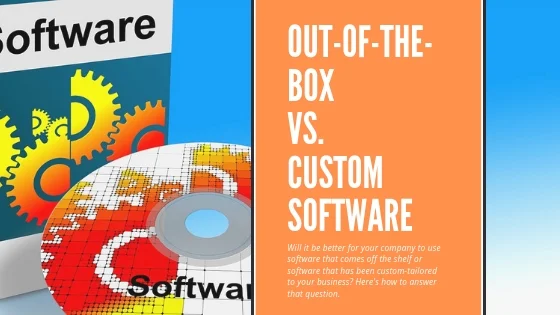
Will Custom or Prepackaged Software Better Meet Your Needs?
Quality software is vital to ensuring smooth operations and competitive success. Software handling business operations falls into two general categories: custom software and off-the-shelf, prepackaged software.
The differences between custom and prepackaged software
Off-the-shelf (a.k.a. boxed, canned, or prepackaged) software is ready-made and often highly specialized.
Custom software is written and tailored for the specific needs of a single business or family of businesses.
Here are eight situations to help you determine which would be a better fit for your company’s needs: Custom software or off-the-shelf software.
Choose custom software if..
You have unique requirements.
Boxed software is designed for a broad audience, so it is not realistic to expect it to meet all of a business’s specific needs. Its features may not work with your business environment, and this may create problems with efficiency or unnecessary costs. Custom software presents a solution to this challenge, as it’s tailored to meet your company’s needs.
Your company needs flexibility.
Prepackaged software may create problems due to its rigidity. It offers only so many feature options, leaving you either with more features than you’ll ever use or not enough to meet company needs. An additional problem may be that it’s not adaptable to your future needs. In contrast, custom software can be extended and modified to fit a company’s changing needs.
You have specialized integration requirements.
Custom software can be modified using software integration techniques. Integration speeds up processes and communications between systems. Not only do in-house systems need to adequately talk to each other, but connecting customer or supplier system to trade partner systems is a common need. Prepackaged software often does not offer this compatibility readily.
You’re working with an essential legacy system.
Old, inefficient software is often kept around because its features are essential to business processes. As time goes by, attempts at modernizing infrastructure are made more complicated by legacy systems that can’t be eliminated. Custom software can keep this system intact while giving software a better user interface or better integration with modern systems. This helps businesses keep up with current demands.
Choose out-of-the-box software if…
You have a modest budget.
Just as there are prepackaged software solutions for nearly every industry, there are off-the-shelf software systems for almost every budget. A wide variety of ready-made software products provide great value on a small budget, with the primary benefit coming in the form of reduced upfront costs.
Your competitive advantage lies elsewhere.
Because prepackaged software is designed to satisfy a broad range of consumers, the product typically doesn’t offer a competitive advantage to businesses. If your competitive advantage lies outside of the realm of the software, then nearly any canned software will suffice. In these instances, it makes sense to invest time and money elsewhere.
You have an immediate need for software.
Off-the-shelf software allows for near-immediate use. You don’t have to face down time waiting for software to be built. The process is usually as simple as: purchase, install, go. While some functionality may be sacrificed by going with an instant fix, you can be up and running right away while taking time to determine what the proper long-term solution will be.
A sufficient solution already exists.
Prepackaged software is often valuable; because many industries have dedicated software for a wide audience. It’s possible that most or all of your needs can be covered. Many companies exclusively use boxed software and see their businesses thrive. If yours is such a business, then there is little reason to spend time and money reinventing the wheel with a custom solution. Keep this simple.
Is it time for your company to ditch the prepackaged software?
Contact us to learn more about how we can help your business meet its goals with a custom software solution unique to your needs. You can also learn more about the custom business software development process by downloading our free e-book, A Guide to Custom Software Development.



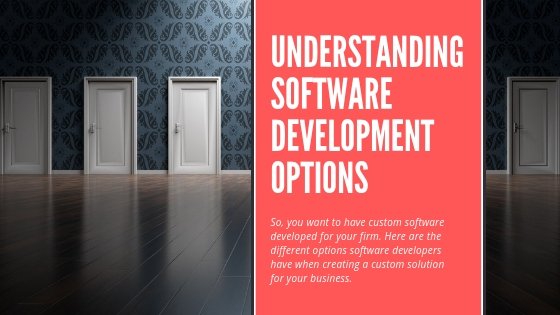
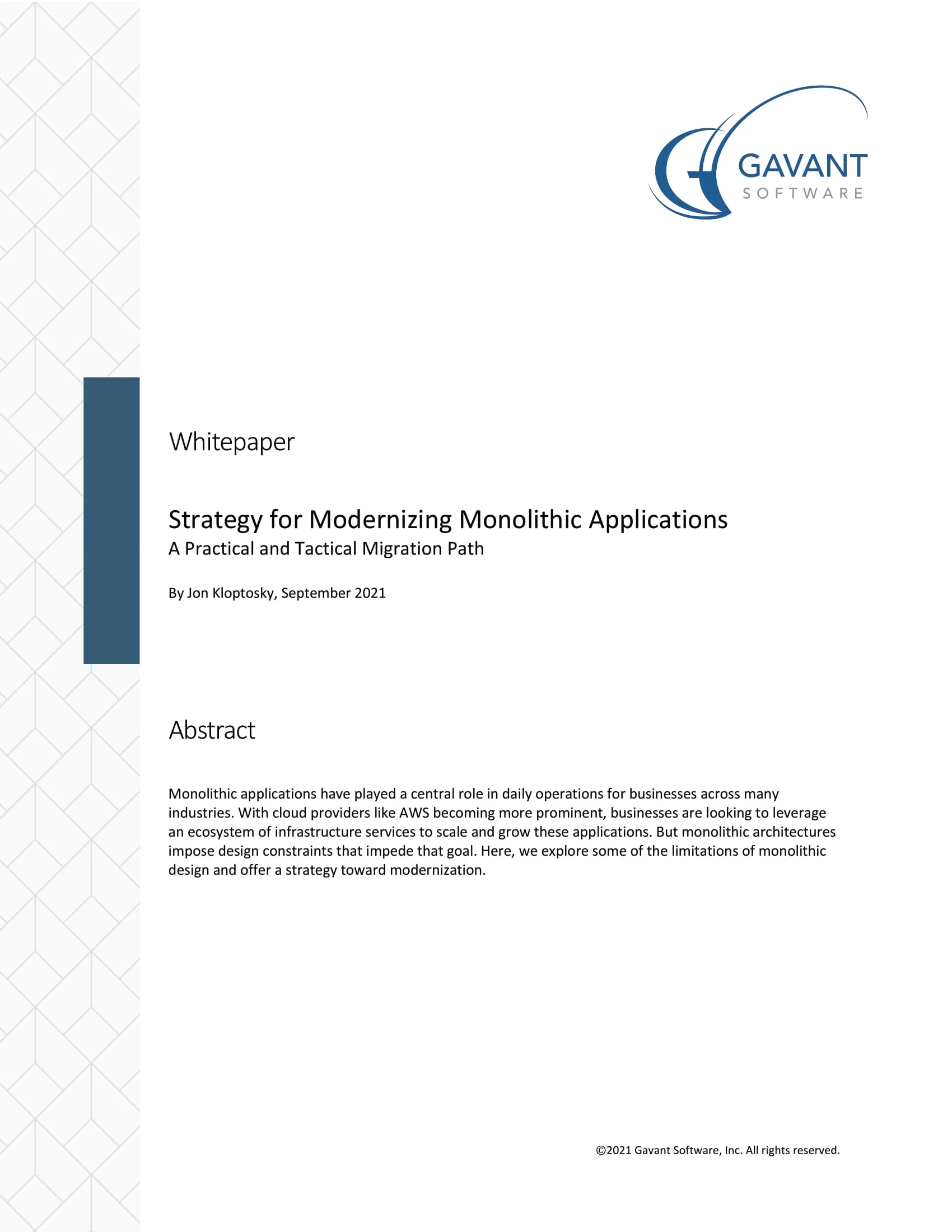 Strategy for Modernizing Monolithic Applications
Strategy for Modernizing Monolithic Applications
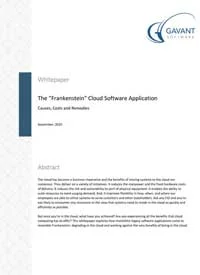 The "Frankenstein" Cloud Software Application
The "Frankenstein" Cloud Software Application
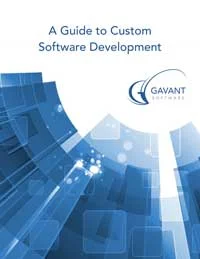 A Guide to Custom Software Development
A Guide to Custom Software Development